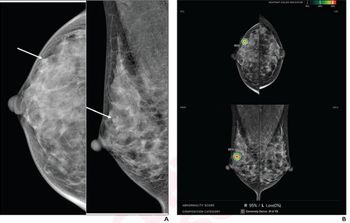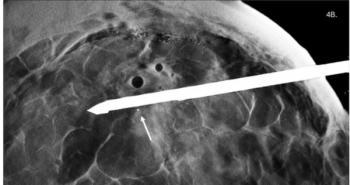
GE files PMA application for digital mammography unit
Senographe 2000D wins expedited review In September, the Food and Drug Administration sparked controversy with its suggestion that full-field digital mammography vendors submit a premarket approval application (PMA) for their devices, rather than
Senographe 2000D wins expedited review
In September, the Food and Drug Administration sparked controversy with its suggestion that full-field digital mammography vendors submit a premarket approval application (PMA) for their devices, rather than a 510(k) application. As the news spread, industry observers expressed concern that a PMA requirement for digital mammography would further delayor even derailthe technologys commercialization, since vendors might not have the ability to gather PMA data quickly (SCAN 10/13/99).
That concern may soon prove unfounded. Less than two months after the FDAs communication, the agency received a PMA submission from GE Medical Systems for its full-field digital unit, Senographe 2000D. GE submitted its application to the FDA on Oct. 29, and was granted expedited review, according to the company.
On Dec. 16, the FDAs Radiological Devices Panel of the Medical Devices Advisory Committee will hold a public meeting in Rockville, MD, to discuss GEs submission and compose a recommendation to the agency as to whether to clear the device. After the meeting, the FDA will receive the panels recommendation and, along with its own scientific investigation data, make a decision about the application.
Although the company declined to comment on how many patients it included in its clinical data for the PMA, it has imaged more than 8000 patients on 18 systems installed outside the U.S., according to Amy Hobert, Americas marketing manager for breast imaging. GE began European shipments of Senographe 2000D in February, installing its first commercial unit at Charite Hospital in Berlin (SCAN 3/17/99).
In its September communication to vendors, the FDA not only suggested the PMA for digital mammography units, but also stated that part of the package would be a required, non-enriched, post-approval screening trial of perhaps as many as 20,000 patients. Acknowledging such a trials time and financial cost, the agency emphasized that it would accept proposals from manufacturers for joint studies, potentially overseen by a third party. Without specifying how it will address this requirement, GE made clear that it is prepared to comply, according to spokesperson Charles Young.
Well follow whatever guidelines the FDA sets out, Young said. Were aware that a post-screening study is a possibility.
Newsletter
Stay at the forefront of radiology with the Diagnostic Imaging newsletter, delivering the latest news, clinical insights, and imaging advancements for today’s radiologists.














